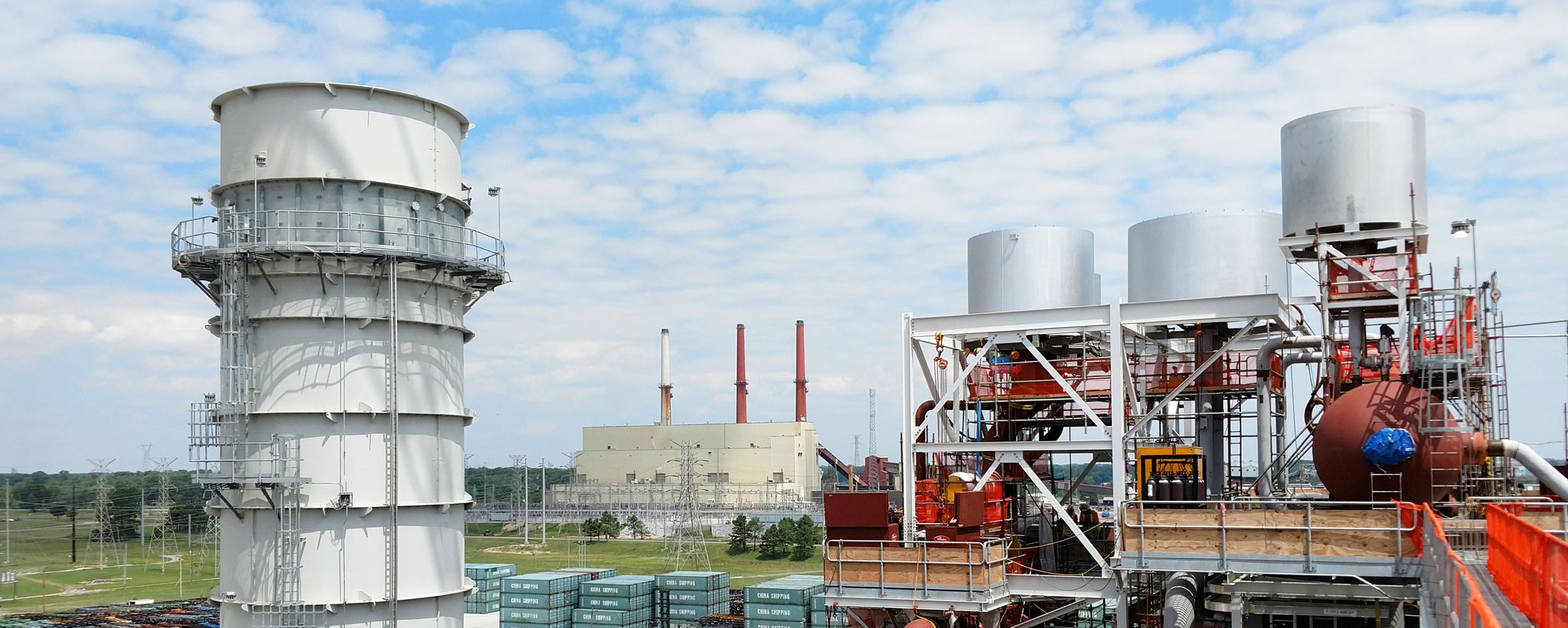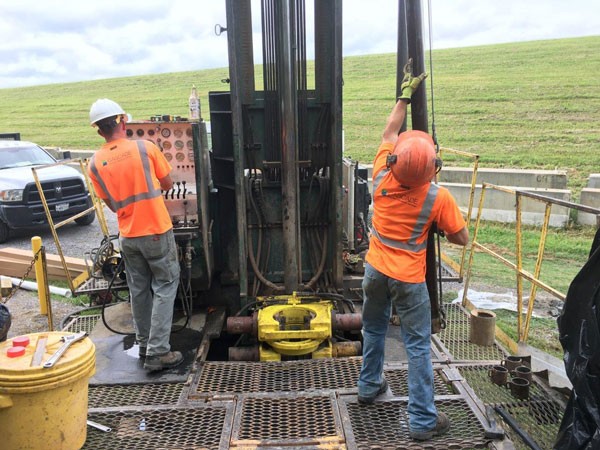 TVA
TVA
The TVA’s Allen Combined Cycle Plant.
State officials should stop the Tennessee Valley Authority (TVA) from using wells drilled into the city’s drinking water to cool a new energy plant here until the utility can prove the plant won’t contaminate that water, according to the Southern Environmental Law Center (SELC) and an environmental consulting firm.
A Tuesday letter from Amanda Garcia, an SELC attorney, expressed “concern” to Tennessee Department of Environment and Conservation, that the TVA will begin operating wells, bored into the city’s drinking water, before complying with a state-mandated investigation.
“Nevertheless, (a TVA plan submitted to TDEC last month) appears to contemplate operating the wells after performing only a perfunctory investigation that does not answer the crucial question of whether operating the production wells may pull arsenic and other contaminants from the ash pond groundwater into the Memphis Sand Aquifer,” Garcia wrote.
TVA drilled five wells into the Memphis Sand Aquifer earlier this year. TVA wants to use the city’s drinking water, called “the sweetest in the world,” to cool its new Allen Combined Cycle Plant.
TVA first said it would use waste water to cool the plant. But board members decided to use Memphis drinking water instead because treating the waste water would cost an additional $9 million-$23 million to the $1 billion project.
In May, TVA officials found high levels of arsenic and other toxins close to the wells it drilled into Memphis drinking water. Arsenic levels were 300 times times higher than federal drinking water standards. Lead levels there were also higher than federal safety standards.
The Tennessee Department of Environment and Conservation (TDEC) ordered an investigation and TVA said it wouldn’t use the wells util the investigation was complete.
 Tennessee Valley Authority
Tennessee Valley Authority
TVA workers install water quality monitoring wells near the Allen Fossil Plant.
TVA conducted a 24-hour-long test run of the wells. Results from the tests aren’t yet available but Garcia said in her letter that the tests were only a “snapshot” and won’t be enough to predict long-term use of the wells.
TVA officials said in an August briefing that they intended to end the use of the coal-fired energy plant at the end of December. The SELC said state officials should stop them until the investigation is complete and they can ensure citizens that the wells won’t confidante their drinking water.
“To fulfill its obligation to protect the public health, TDEC should not countenance TVA’s attempt to circumvent the requirements of the (investigation),” Garcia wrote. “Please clarify as soon as possible whether TDEC has or will authorize TVA to implement the (plan) as proposed, or will require TVA to conduct its investigation in a manner that ensures the protection of the city of Memphis’s primary drinking water source.”
The SELC hired Global Environmental, a Nashville-based consulting firm, to review the TVA plan of the investigation. That revised focused, primarily, on the investigative activities proposed by a collaboration of the United States Geologic Survey (USGS) and the University of Memphis Center for Applied Earth Science and Engineering Research.
Mark Quarles, a principal scientist at the company, said, in short, the investigation won’t be enough.
“In summary and in my professional opinion, the USGS-UM proposed investigative approach falls short of providing reasonable certainty prior to startup of the combined cycle plant that the wells that TVA drilled into the Memphis Sand Aquifer will not pull contaminated groundwater from the Allen Fossil Plant deeper into the Memphis Sand Aquifer,” Quarles wrote in a Tuesday letter to TDEC.
[pullquote-1]Scott Brooks, a spokesman for TVA, said the exact schedule for putting the new plant online “will depend on the results of the testing.” Though, he said, the plant is expected to be in operation before mid-2018.
“TVA is following the direction of TDEC as we conduct the investigation, which includes the recent 24-hour test of the 5 pumps into the Memphis aquifer and the installation of a network of 24 additional testing wells around the ash pond where the high readings were found,” Brooks said. “TVA does not plan to utilize the Allen gas plant cooling water wells for plant operations until the remedial investigation into arsenic contamination, found in shallow monitoring wells a half-mile away at the fossil plant, provides additional data to support safe use.”
The exact schedule of pre-operational activities will depend on results of the testing, he said. but noted the plant is expected to be in operation before mid-2018.